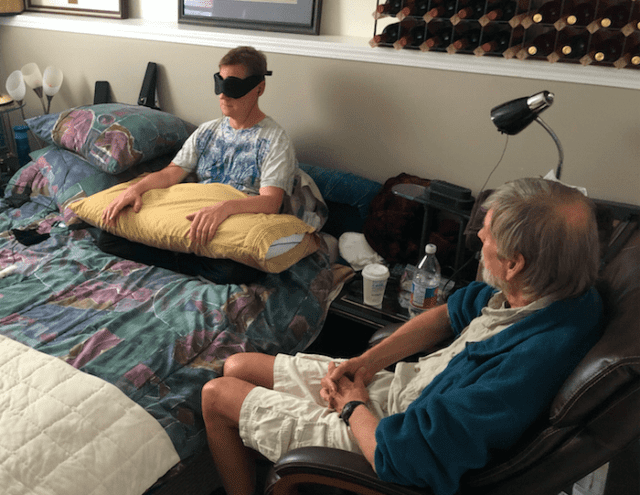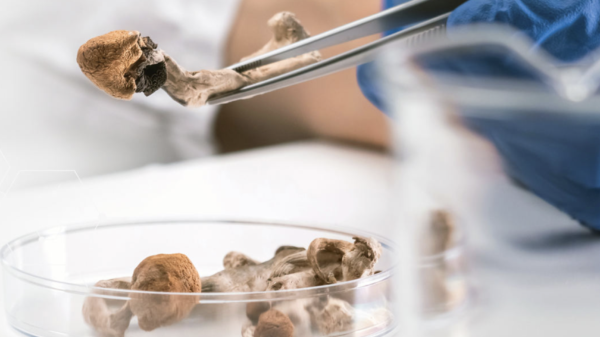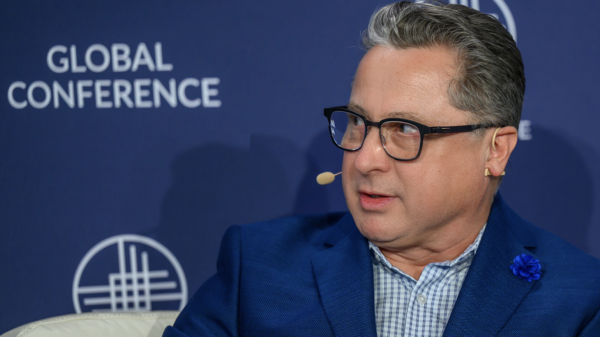Johns Hopkins Medicine has been awarded a multi-million dollar grant from the National Institutes of Health (NIH) to research the potential impact of psilocybin therapy to help tobacco smokers quit.
The nearly US$4-million grant is funded by the NIH’s National Institute on Drug Abuse, and it’s the first federal grant to be awarded for psychedelic treatment research in 50 years.
“The historical importance of this grant is monumental,” said principal investigator Matthew Johnson, who started the line of research testing the impact of psilocybin on tobacco cessation 13 years ago.
“We knew it was only a matter of time before the NIH would fund this work because the data are so compelling, and because this work has demonstrated to be safe. Psilocybin does have very real risks, but these risks are squarely mitigated in controlled settings through screening, preparation, monitoring and follow-up care.”
A 2014 pilot study of psilocybin treatment for long-term smokers showed an abstinence rate of 80 per cent after six months, “substantially higher than typical success rates in smoking cessation trials,” Johnson said previously.
The double-blind randomized trial uses psilocybin sessions and cognitive behaviour therapy, a type of talk therapy that aims to pinpoint negative thought patterns that can affect behaviour and mental health.

Thomas Hartle (left), the first Canadian to legally undergo psilocybin therapy on Aug. 12, 2020, with therapist and TheraPsil founder Dr. Bruce Tobin. Photo via TheraPsil
Johns Hopkins will lead the three-year study in collaboration with the University of Alabama at Birmingham and New York University. All three institutions will conduct the study simultaneously to diversify the participant pool so the results apply to a wide range of people who smoke.
Johns Hopkins notes a “growing renaissance of research with classic psychedelics” in the last 20 years largely funded by philanthropy that has shown “impressive” clinical findings for cancer-related existential distress, major depressive disorder and substance use disorders.
Read more: Psilocybin treats depression as well as common antidepressant: study
Thanks to @tferriss for bringing attention to milestone. The philanthropic funding from him and others has paved the way for this possibility of federal funding. https://t.co/TVjfRTHh2g
— Matthew W. Johnson (@Drug_Researcher) October 18, 2021
There’s been an increase in government attention to the therapeutic benefits of psychedelics, as federal agencies acknowledge the value of the research.
In June, NIH director Dr. Francis S. Collins expressed support for cannabis and psychedelic research, and said the agencies have begun to realize psychedelics are potential tools for medical research.
The Drug Enforcement Agency recently requested significantly increasing production quotas for synthesizing, extracting and manufacturing schedule I drugs, including psilocybin.
Read more: DEA proposes hiking Schedule I drug production for medical research
Read more: Positions of NIH, FDA signal we’re ‘on the brink of a psychedelic revolution’
Follow Kathryn Tindale on Twitter
kathryn@mugglehead.com














